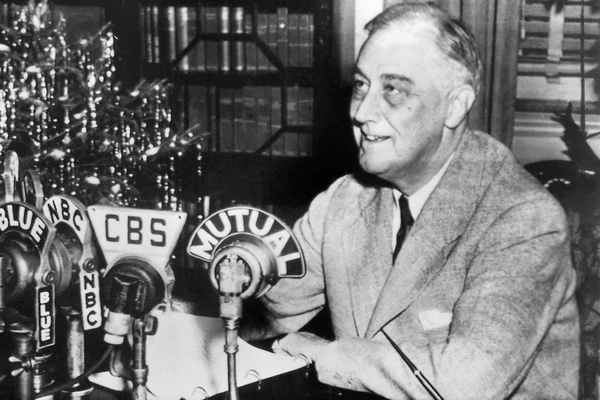Will the 2020 Winner Be Empowered to Make Big Changes?

Not many presidential elections usher in periods of dramatic change in public policy, significantly altering the role of the federal government in American society.
Could the 2020 contest between President Donald Trump and Vice President Joe Biden be one of the exceptions, an empowering election in every sense of the word?
If history is any guide, the answer hinges on whether the winning candidate’s victory satisfies three conditions.
First, the new (Biden) or reelected (Trump) president must run a change-oriented campaign, promising to pursue larger-than-usual policy innovations if elected.
Second, the president must win the election by a landslide, something along the lines of 400-plus electoral votes and at least 55% of the two-party popular vote.
Third, the president must have long coattails in the accompanying congressional elections, such that the party picks up a significant number of new seats. The message long coattails sends to members of Congress is that the president’s popularity may well affect their own political standing and therefore they’d be well-advised to follow the president’s lead on policy whenever possible.
Only four empowering elections occurred during the 20th century and none so far in the 21st, which means that we may be due for one.
The most recent was in 1980, another year of crisis marked by Americans held hostage in Iran and sky-high inflation and interest rates at home. As late as the eve of the voting, nearly every expert predicted that the contest between President Jimmy Carter and former California Gov. Ronald Reagan would be close.
It wasn’t. Reagan ran a change-oriented campaign, promising a large tax cut, a massive defense buildup, and severe reductions in federal regulation of business and social welfare spending.
Reagan defeated Carter in the largest landslide against an incumbent president in history: 489 electoral votes to 49. Among the 45 states Reagan carried were solidly Democratic New York, New Jersey and Oregon.
Just as astonishing, the GOP added 12 Senate seats, regaining control of the chamber for the first time in a quarter century, and 34 seats in the House. The result was that Reagan was able to deliver on most of his campaign promises, thereby steering the government’s course in a conservative direction.
In 1964 Lyndon B. Johnson won a victory of similar magnitude. Although he was already president, having succeeded to the office when John F. Kennedy was assassinated in November 1963, LBJ pledged that if elected to a full term he would pursue his own Great Society agenda of material assistance to the poor and cultural enhancement for the elite.
Johnson defeated Goldwater by 26 percentage points in the national popular vote, the largest margin in history, and swept the electoral college by 486 to 52. Previously rock-solid Republican states in the Midwest and Mountain West fell into his column, as did Vermont, which had never before voted Democratic.
House Democrats rode Johnson’s coattails to increase their majority from 258 to 295. Within the Democratic caucus, northern liberals outnumbered southern conservatives for the first time in decades.
New York Gov. Franklin D. Roosevelt’s election in 1932 and New Jersey Gov. Woodrow Wilson’s in 1912 were the 20th century’s other two empowering elections. In each case, the winning Democrat promised big changes in policy (without being terribly specific), won by a landslide, and brought in legions of new congressional Democrats on his coattails.
The result: FDR’s New Deal and Wilson’s New Freedom agendas were enacted into law.
Of these four elections, the magnitude of the president’s victory in all but 1964 came as a surprise to the political pundits of the day.
Will 2020 be another one?
Not for Trump, who has said little about his second-term agenda (the GOP didn’t even write a platform) and whose hopes of victory extend not to a landslide with long coattails, but rather to winning a narrow electoral vote majority while holding GOP losses in Congress to a minimum.
Biden’s prospects for a personal landslide with long coattails are greater, albeit far from certain. Such a victory would solidify the Democratic majority in the House and restore Democratic control to the Senate. Biden’s hopes for such an outcome rest first on holding on to his roughly double-digit lead in the national popular vote, in which case all of the battleground states and some that lean Republican will go his way. Second, all of the half-dozen or more toss-up Senate elections must go Democratic, as well as some in previously safe Republican states like Georgia and South Carolina.
But even meeting these two conditions for an empowering election won’t be enough for Biden to translate his agenda into major policy changes unless he speaks more boldly about what he intends to do. Biden has such an agenda in areas such as climate, health care, and the economy. But his campaign has focused on restoring the Obama era and addressing the pandemic rather than on transforming the role of government in American society.